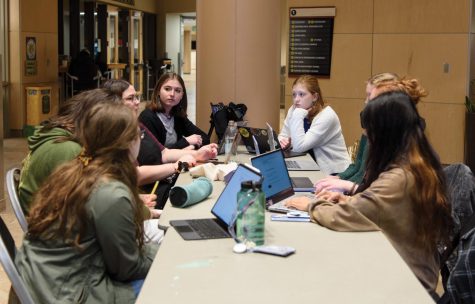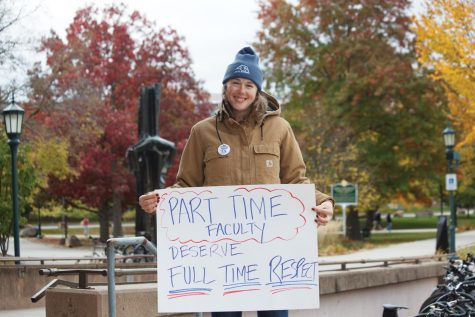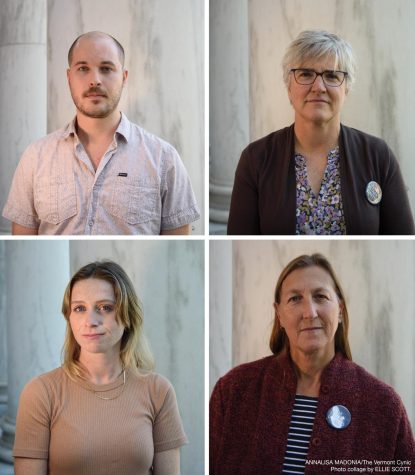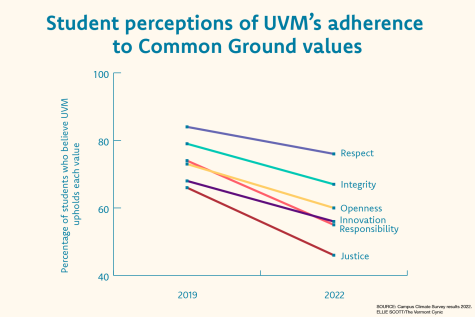Food choices impact chronic pain symptoms
November 30, 2016
A beaming Kimberly Evans, UVM Medical Center nutritionist, set up a table of food for her presentation in front of a crowd of eager attendants in Davis Auditorium Nov. 15.
Along with 27 other institutions, UVM is a part of a nationwide movement known as the Teaching Kitchen Collaborative, which enhances patient well-being along with nutrition and culinary literacy.
Evans said she aims to educate students on the benefits of cooking for themselves to encourage healthier living.
“The kitchen is the heart of the home,” she said. “If one is confident in the kitchen, [he or she] will be confident in life.
For Evans, not only is cooking about self-awareness and confidence, but about using certain foods to enhance every aspect of health, she said.
Research done on participants afflicted by diabetes has proved that those who cook at least one more meal at home from scratch have better overall health, she said.
“The movement is about gaining knowledge about healthy foods and learning how to use them,” Evans said.
The average American diet consists of a large amount of foods high in sugars trans fats and sodium. This is known among the nutritionist community as the “SAD diet,” or the Standard American Diet, she said.
The average American household spends more money on refined grains, sugary foods and red meat than anything else, according to a study by the USDA; the numbers are much higher than what they recommend.
In an effort to demonstrate how diet can improve chronic pain through the consumption of anti-inflammatory foods, Evans introduced her audience to the benefits of kale, yogurt, pumpkin seeds, lemon, oats, farro, blueberries and salt.
Evans emphasized that it is never too late to be healthy.
Senior psychology major Jordan Leabman said that eating healthy is particularly important because it’s something humans actually have control over.
“A simple decision of what to eat for breakfast or what to grab as a snack can change your entire day,” she said.
Leabman said as a psychology major, a lot of her classes focus on the impact small, personal decisions like food choice make on every day mental health.
“You don’t really think about it,” she said, “but even I notice that my day has gone better or worse based on some of the foods I choose to eat.”
Leabman said it is interesting, but not surprising, that nutritional choices can better or worsen chronic pain in people as well.
In response to the flood of specific questions of particular foods and nutritional practices like vegetarianism, Evans said she “meets people where they are,” showcasing the flexibility possible with nutritional health.
This event was part of a series of lectures on anti-drug pain management.
“Good food can make great medicine,” Evans said in closing.
The next event will be in January, focusing on how sleep influences pain and the following in March, regarding acupuncture.















